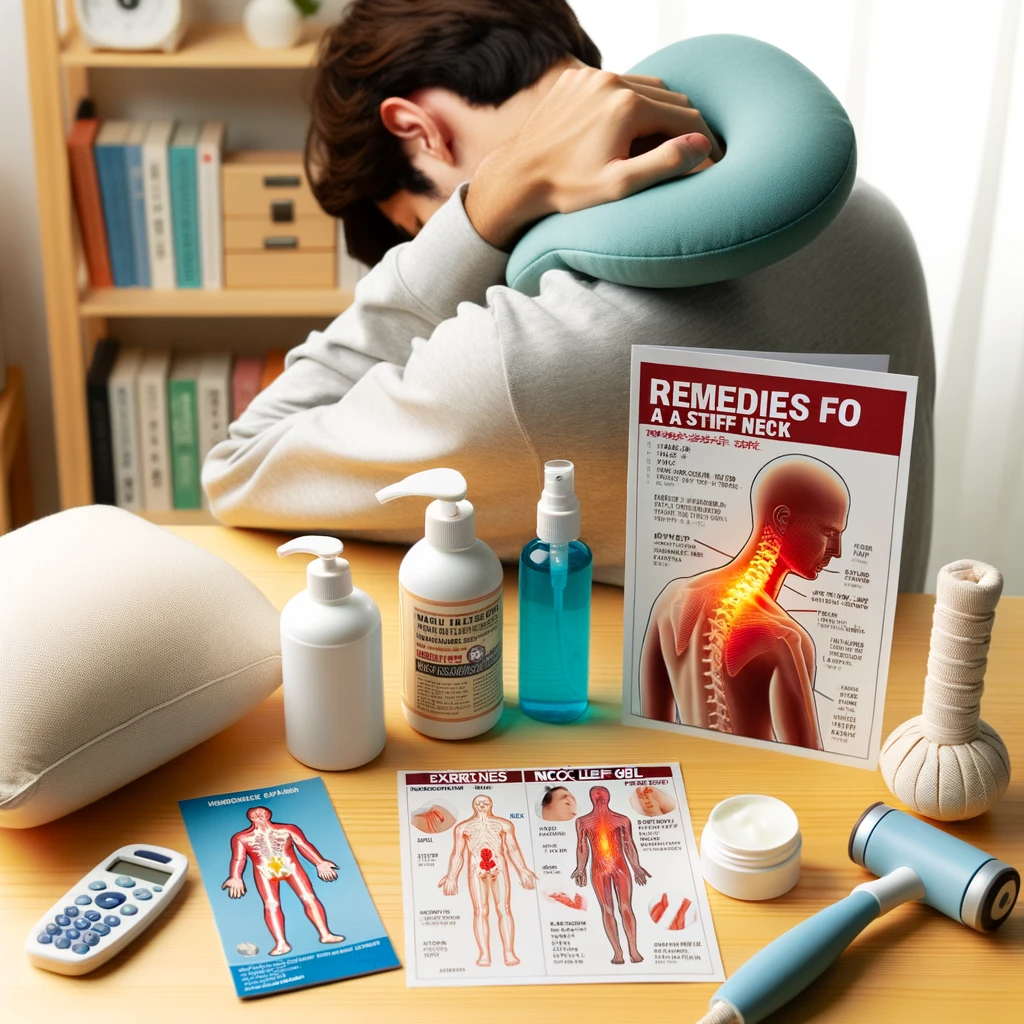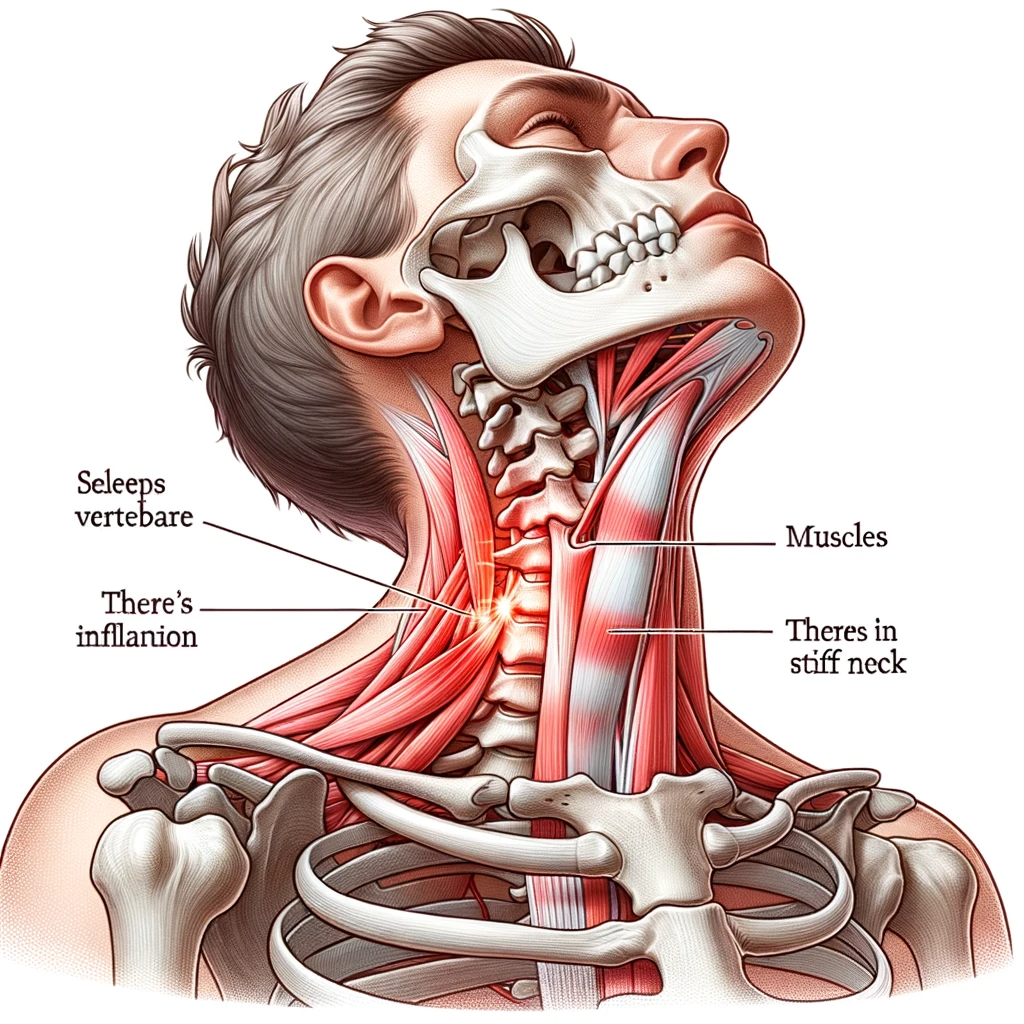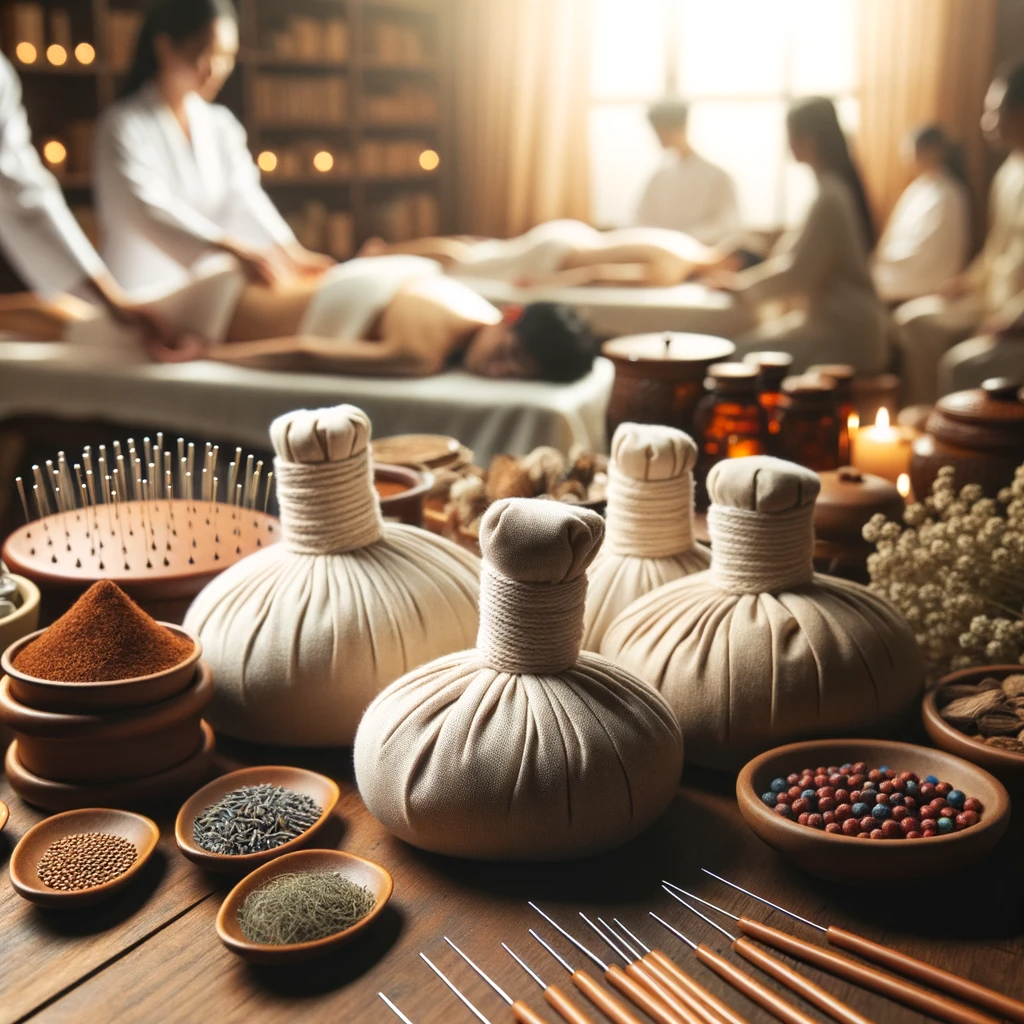date:
10.2023.22The Chilling Truth: How Cold Weather Impacts Your Neck and Body
Our bodies are remarkable at adapting to their environment, but cold temperatures can put a strain on our systems, leading to discomfort. Here's a look at the physiological chain reaction that often results in that nagging stiff neck:
- Temperature Sensing: When the mercury dips, specialized sensors in your skin alert your central nervous system. Your body's priority? Keeping your core warm.
- Vessel Constriction (Vasoconstriction): To prevent heat loss, your blood vessels near the skin's surface narrow. While great for maintaining core temperature, this can reduce blood flow to your muscles. Less blood means less oxygen and fewer nutrients, which can make muscles tight and achy.
- Muscle Contraction: Your muscles might involuntarily tense up to generate extra heat or as a protective reflex against injury. This sustained tension, especially if you're holding a static position for a while (like sleeping awkwardly), can lead to stiffness and pain.
- Joint Fluid Thickening: Think of the fluid in your joints like oil in an engine. In the cold, this synovial fluid becomes thicker, making your joints feel less lubricated and stiffer. This is particularly noticeable first thing in the morning.
- Inflammatory Response: When muscles are tight and joints are stiff, your body might trigger an inflammatory response. This releases chemicals that can increase pain and discomfort, potentially slowing down your recovery.
- Spasms and Pain: With reduced blood flow and increased tension, muscles can go into spasm, amplifying the pain and that stiff sensation, especially in colder weather.
- Increased Risk of Injury: Cold, stiff muscles are more vulnerable. If you're engaging in winter activities, a sudden movement or minor fall could lead to a quick jerk of the neck, potentially causing injury, pain, and stiffness.

Finding Relief: Self-Care Strategies You Can Use Today
While cold weather might be a factor, you're not powerless. There are several self-care strategies you can employ to help ease that stiff neck:
- Apply Warmth: A warm compress, heating pad, or even a hot shower can do wonders. Heat helps to relax muscles, increase blood flow, and may reduce pain and inflammation. Aim for 15-20 minutes at a time.
- Gentle Movement and Stretching: Slow, deliberate neck stretches can help improve flexibility and blood flow. Avoid sudden movements. Simple exercises like gentle neck rotations (ear to shoulder, chin to chest) can be beneficial. Always listen to your body and stop if you feel any sharp pain.
- Massage the Area: Gently massaging the tender spots in your neck and shoulders can help release tension and improve circulation. You can use your fingers or a self-massage tool.
- Stay Hydrated: Dehydration can contribute to muscle cramps and stiffness. Make sure you're drinking enough water throughout the day, even in colder weather.
- Maintain Good Posture: Be mindful of your posture, especially when sitting for long periods. Ensure your computer screen is at eye level and avoid craning your neck.

The Eastern Perspective: How Traditional Chinese Medicine Approaches Neck Pain
Traditional Chinese Medicine (TCM) offers a holistic perspective on stiff necks, often viewing them as a result of "wind-cold invasion" or "stagnation of Qi (energy) and Blood." From a TCM standpoint, addressing a stiff neck involves restoring balance and promoting smooth flow within the body.
Here are some approaches a TCM practitioner might recommend:
- Herbal Formulas: Just as Western medicine uses medications, TCM employs specific herbal formulas tailored to your individual constitution. These formulas aim to warm the meridians, invigorate blood circulation, and relax muscles, addressing the root cause of the stiffness.
- Acupuncture and Cupping: These ancient techniques are widely used to alleviate stiff neck symptoms. Acupuncture involves inserting fine needles into specific points on the body to stimulate energy flow and reduce pain. Cupping uses suction cups to draw blood to the surface, promoting circulation and releasing muscle tension. Many patients find significant relief after just a few sessions.
- Tui Na (Therapeutic Massage): This specialized form of Chinese medical massage can help release tight muscles, improve range of motion, and restore alignment in the neck and upper back. It's often more targeted and vigorous than a typical spa massage.

Exploring Topical Relief: Traditional Chinese Medicine Balms and Plasters
For localized relief, TCM offers a variety of topical applications, commonly known as balms, plasters, or medicated oils. These are formulated with specific herbs known for their pain-relieving, anti-inflammatory, and circulation-boosting properties.
When considering a TCM topical product, you might encounter options like:
- Herbal Plasters (e.g., "Black Plasters" or "Diao Gao"): These adhesive patches are infused with concentrated herbal extracts that are slowly absorbed through the skin. They're often used for longer-lasting relief and can be very effective for muscle and joint pain.
- Medicated Balms (e.g., "Qing Cao Gao" or "Wan Ying Gao"): These ointments are rubbed directly onto the affected area, providing a warming or cooling sensation and delivering herbal benefits to the muscles and tissues.

Many of these products contain active ingredients that promote "moving blood and dispelling stasis" (活血化瘀, huó xuè huà yú) and "relaxing tendons and activating collaterals" (舒筋活絡, shū jīn huó luò). Common herbs found in such formulations might include:
- Cinnamon (Rou Gui): Known for its warming properties and ability to improve circulation.
- Myrrh (Mo Yao): Used to invigorate blood and alleviate pain.
- Frankincense (Ru Xiang): Valued for its pain-relieving and anti-inflammatory effects.
- Menthol and Camphor: Often included for their immediate cooling or warming sensation and analgesic properties.
Always consult with a qualified TCM practitioner to determine the most suitable herbal formula or topical product for your specific condition. They can provide personalized recommendations and ensure safe and effective use.
Don't Let Winter Be a Pain in the Neck!
Understanding the connection between cold weather and your body's response is key to managing discomfort. By combining proactive self-care with the insights of Traditional Chinese Medicine, you can find effective ways to alleviate stiffness and pain, especially during the colder months.
At TAIYUN PHARMACEUTICAL, we are dedicated to bringing the best of TCM to the American market, offering high-quality products rooted in centuries of wisdom. We believe in providing natural, effective solutions for everyday discomforts.
For Business Inquiries:
Are you a U.S.-based distributor or retailer looking to expand your product offerings with trusted, effective Traditional Chinese Medicine solutions? Our product line offers significant potential for growth in the booming natural health market.
We invite you to learn more about our innovative products and partnership opportunities. Please contact us directly at bluesqaull92@gmail.com to discuss how we can collaborate and bring the benefits of TCM to more Americans.



